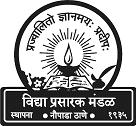Mind and ‘Sthitprdnya’ (Bhagavad-Gita)
Jayashree Aniruddha Sakalkale*
Abstract
All Indian philosophies, except the materialists who deny mind, agree that our intuition and moral religious experiences are beyond the scope of reasoning and science.
Sankhya, one of the shad-darshanas, have mentioned and counted mind with 10 organs, including 5 organs of action, 5 organs of knowledge, and 11th mind which is invisible and has no place in human body.
The word Manas (Mind) is derived from the root ‘Man’ to think ‘Manyate anen iti manas’. The mind makes us aware of the world around us and is also the source of our self awareness.
There are several words for mind in Sanskrit 1) Chitta- chit Samdnyane, 2) Manas - as it is explained above 3) Antah-karan – It is the definition made by Naiyayikas, means inner organ, 4) Hridayam- harti cha aharti Indriyani iti.
At the very beginning of Bhagvad Gita, Shrikrishna tells his favorite disciple Arjun that he is suffering from a dilemma. It is only his inner sorrow and selfishness that weakens the mind of Arjun. He is very regretful for the Kshatriya who was born for fighting, destroying evil and maintaining discipline in society. He is running away from his duty of serving Dharma. Our mind is closely associated with our needs and desires. Shrikrishna gets angry and says that Arjuna is going through confusion and yet speaks like the wise one. In the second cantos Shrikrishna explains the concept of Sthitpradnya. It is the highest goal set by him for Arjuna. Here Shrikrishna calls the common man ‘aphritchetasam’ (one of confused mind) and emphasizes adoption of ‘Vyavsayitmika Buddhi’ (Concentration of mind). Desires dominate our anger, and then, confusion emerges from anger. Confusion destroys our capacity of decision making. Ultimately it results in great disaster. One, who cannot control his mind, is driven far away from the power of thinking just like wind drives the boat away from the river bank.
In his portrayal of ‘sthitpradnya’ he elaborates the combination of Manas, Buddhi and its connection to actions and reactions.
Thus, the concept of mind in different cantos of Gita, as the inner strength of human, is closely related with the ultimate goal of human being - of achieving the origin of the world “Lord Brahman”.
This paper aims at defining the concept of Manas, Buddhi and its relation to Sthitprdnya as stated in Bhagvad Gita.
……………………………………………………….
* Dept, of Sanskrit, Shankarlal Khandelwal College, Godbole Polts, Akola – 444001
Corrrespondence: ‘Ranai’ Shincharan peth, Near Mankeshwar Temple, Old city, Akola- 444002
Email- jayu_sakal@rediffmail.com
Hello- 9422962044
Final Accepted 1st Workshop 31ST Oct 2009 MBC
